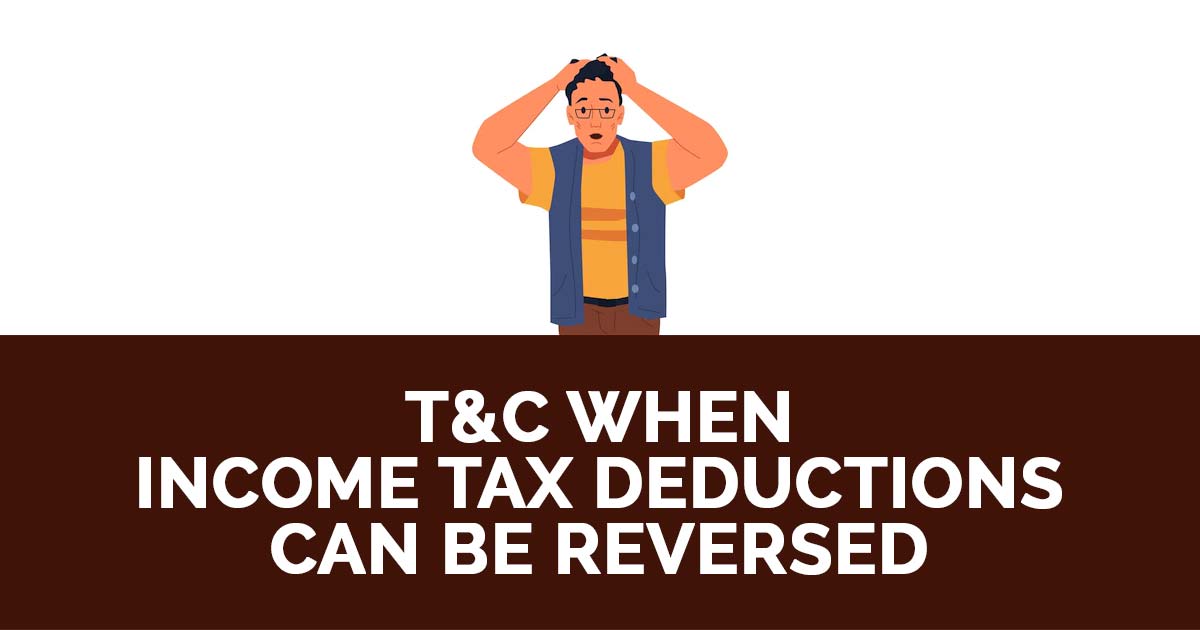
People used to invest in several tax schemes and avail the of tax deductions to diminish the overall tax payout. But the union budget 2020-21 has shown a new tax regime that provides the concessional rates with seven slabs with no tax exemptions, the old tax regime would be left popular because of several exemptions, and the same tax exemptions would get reversed as per these investments do not meet. The investors should prevent closing these investments prior to the mentioned time duration or else all the deductions availed during investing would be reversed and the amount gets levied to tax.
Principal Repayment of House Under Section 80C
A person would avail of the tax exemption of up to Rs 2 lakh beneath section 24B on the interest furnished for the home loan and up to Rs 1.5 lakh on the principal repayment beneath section 80C in a fiscal year. But if he sells the house in 5 years from the finish of the tax year where the possession of the property is received, the tax deduction towards the principal repayment of the house availed in former years would get taxable in the sale year. The deduction for the interest payment towards the housing loan would not be withdrawn. The capital gain upon the sale would get subjected to tax.
Give up a Policy of Life Insurance Company
An assessee would get a tax deduction beneath section 80C of the income tax act towards furnishing the life insurance policy premium as per the conditions mentioned. But when the policy would be surrendered in 2 years, the claimed deductions in the former years shall get subjected to tax in the year in which the policy lapses. The insurer would deduct the complete amount of the premium if it lapses post 1 year. After the second and third year if one surrenders then only 30% of the entire premium would get paid back.
Income Tax Saving Scheme for Senior Citizens
For a regular cash flow post-retirement, various people invest in the senior citizen savings scheme (SCSS) as a lump sum for 5 years. The principal amount deposited in SCSS is qualified for the tax deduction beneath section 80C. But if it is withdrawn prior to 5 years then the deductions availed would be reversed and shall be treated as the income for the subsequent tax filing year. But a penalty would be imposed for the early withdrawal.
Money Withdrawal from Employees’ Provident Fund
The majority of the salaried individual chooses employees’ provident fund to make their retirement corpus. An employee contributes 12% of his basic and DA to the EPF account and the employer indeed makes an equal contribution. The amount deposited is qualified for the dedication of tax beneath section 80C along with the earned interest being free from tax. EPFs are for the long-term savings when the people withdraw money prior to finishing 5 years of the successive services then the deduction availed during the period of making the contribution would be withdrawn and he would need to furnished the tax on the whole amount in the withdrawal year. Despite the contribution of the employers and the interest earned would be levied to tax. But in the case, the services get quashed as of an employee’s ill health or closure of the business then the employee would not need to furnish any tax.
Read Also: Claimable Income Tax Deductions for Expenses U/S Section 80C
Unit-linked Insurance Plans and ELSS
The investments in equity-linked savings schemes (ELSS) and unit-linked insurance plans (Ulips) of life insurance companies are qualified for advantages of tax under Section 80C. But ELSS scheme poses a lock-in period of 3 years, Ulips have a lock-in for 5 years. When the funds are withdrawn in the lock-in period, the tax deduction availed would get reversed.
Reversed Benefits for Taxpayers
- When you surrender your life insurance scheme in 2 years, deductions availed on the premiums furnished are subjected to tax.
- When the house bought with the loan is sold in 5 years the tax deductions on the principal repayment shall be reversed.
- On the closure of EPF, SCSS, or Ulip in 5 years or ELSS in 3 years, the tax deductions would be reversed.









